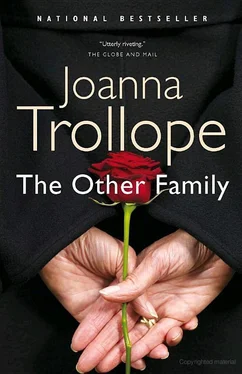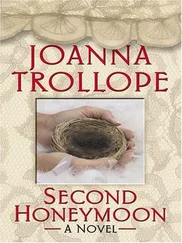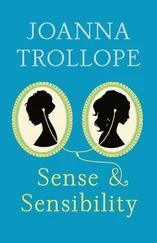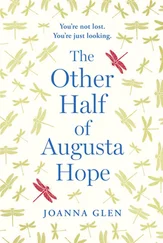Joanna Trollope - The Other Family
Здесь есть возможность читать онлайн «Joanna Trollope - The Other Family» весь текст электронной книги совершенно бесплатно (целиком полную версию без сокращений). В некоторых случаях можно слушать аудио, скачать через торрент в формате fb2 и присутствует краткое содержание. Жанр: Старинная литература, на английском языке. Описание произведения, (предисловие) а так же отзывы посетителей доступны на портале библиотеки ЛибКат.
- Название:The Other Family
- Автор:
- Жанр:
- Год:неизвестен
- ISBN:нет данных
- Рейтинг книги:5 / 5. Голосов: 1
-
Избранное:Добавить в избранное
- Отзывы:
-
Ваша оценка:
- 100
- 1
- 2
- 3
- 4
- 5
The Other Family: краткое содержание, описание и аннотация
Предлагаем к чтению аннотацию, описание, краткое содержание или предисловие (зависит от того, что написал сам автор книги «The Other Family»). Если вы не нашли необходимую информацию о книге — напишите в комментариях, мы постараемся отыскать её.
The Other Family — читать онлайн бесплатно полную книгу (весь текст) целиком
Ниже представлен текст книги, разбитый по страницам. Система сохранения места последней прочитанной страницы, позволяет с удобством читать онлайн бесплатно книгу «The Other Family», без необходимости каждый раз заново искать на чём Вы остановились. Поставьте закладку, и сможете в любой момент перейти на страницу, на которой закончили чтение.
Интервал:
Закладка:
Today her clothes were blue. Grey-blue. And then the pearls Richie had given her when Scott was born, which she wore almost every day, and the pearl earrings Scott had given her for her fiftieth birthday. He’d only been twenty-one then. He must have gone without a lot, to buy pearl earrings for her, and even now, when she considered what sort of sweet and clumsy atonement he was trying to make for his father’s absence, she felt unsteady about her earrings. So she wore them daily, even when she wasn’t wearing her necklace, as she wore the Cartier watch she had awarded herself when she was sixty. The watch had a tiny domed sapphire set into the knob that moved the hands. That sapphire was, for some reason, a source of great satisfaction to her.
Breakfast was equal y not a matter for daily whim. Porridge in winter, muesli in summer, with a grated apple, more tea and a selection of vitamin capsules measured out into an eggcup Scott had had as a child for Easter one year, fashioned like a rabbit holding a smal china basket. The rabbit’s ears were chipped, and the basket was veined with cracks, but its familiarity made Margaret grateful to it in the same way that she was grateful to the Lloyd Loom laundry basket in her bathroom, inherited from her mother, and the gateleg table she and Richie had bought, after his first successful gig, their first piece of grown-up furniture, a portent of one day owning a house of their own instead of sharing someone else’s.
When Scott came out to Tynemouth at weekends – not often, but he came – he’d bring Continental breakfast pastries from Newcastle, and Colombian coffee, and cranberry juice. Dawson, who appreciated a good croissant, became quite animated at these breakfasts, leaning against Scott’s legs and purring sonorously. Today, he had ignored his breakfast. It was untouched and he had removed himself to his favourite daytime place, stretched along the back of the sofa in the bay window of the sitting room, to catch any eastern sun there might be, and also any passing incident. He would not, Margaret knew, involve himself in anything that required exertion, but equal y, he liked to know what was going on.
Breakfast eaten, Margaret put her cereal bowl in the dishwasher, restored the rabbit to his shelf by the vitaminsupplement boxes, switched on the telephone answering machine and checked her bag and her briefcase for everything she would need during the day. In the hal , she paused in front of what Scott used to cal the lipstick mirror. It reflected what it always reflected. Someone once – an il -advised someone – had told her that she looked like the best kind of Tory supporter, groomed, capable, formidable. Margaret, born and bred a socialist in a cramped terraced cottage in North Shields, had been offended to her very marrow, and had said so. Her heroine, as she was growing up, had been Barbara Castle.
The seagul had evacuated itself thoroughly down the back window of Margaret’s car. If a day in the office awaited her, she would walk along East Street, behind King Edward’s Bay, to Front Street, but if, as today, her diary included a meeting in Newcastle, then she would take the car. She put her briefcase on to the back seat, and climbed in behind the wheel. The seagul ’s souvenir would have to wait.
Her office – Margaret Rossiter Entertainment Agency – was located beside one of Tynemouth’s many cafés, and above a hairdresser’s. A narrow door from the street – painted dark-grey matt at Scott’s insistence, and with brushed-aluminium door furniture instead of the brass she would have preferred – led into an equal y narrow white-painted hal way lined with framed photographs of some of Margaret’s clients and towards a staircase at the back. At the top of the staircase was a second door, and behind that the two rooms which had paid for Scott’s final years of education and training as wel as providing Margaret’s living for over two decades and a part-time living for Glenda, who did the correspondence, invoicing and books, and whose husband was disabled after an accident at the Swan Hunter shipyard when he was only twenty-seven.
It was the disablement that had swayed Margaret when hiring Glenda. It had swayed her because her own father had been disabled, and his injury had unquestionably darkened her childhood. He’d been chief engineer on a trawler, the Ben Torc , registered to North Shields, a trawler belonging to Richard Irvine and Sons, who’d owned almost two hundred trawlers and herring drifters when Margaret was a child and she could remember them, jammed up together against the Fish Quay in North Shields, tight as sardines in a can. And then her father – Darky, his mates cal ed him, on account of his swarthy skin – had lost an arm in an engine accident, which was never described to Margaret, and was transferred to work in the Shields Ice and Cold Storage Company canning herrings, and, at the same time, had taken to frequenting a local shebeen cal ed the Cabbage Patch. The rows at home were terrible. There wasn’t space in that house for living, let alone for screaming. Margaret and her sister fled out or upstairs when the screaming began. They didn’t discuss it, ever, but there was a mute and common consent that the rows were unbearable and that their mother was more than capable of looking after herself, especial y if her opponent had only one arm and was unsteady on his feet. As a girl and a young woman, their mother had worked as a herring fil eter, and both her daughters were fil ed with a determination not to fol ow her.
The determination in Margaret’s sister was so strong that she went to Canada when she was sixteen, and never came back, leaving Margaret and her mother to deal with life in North Shields, and the increasing wreck of Darky Ramsey and his appetite for what he infuriatingly referred to as
‘liquid laughter’.
Glenda’s husband didn’t drink. He was a quiet, careful man in a wheelchair who spent his days mending things and regimenting things and analysing his household’s meagre cash flow with a calculator. He dealt with his disability by the obsessive control of detail, and Margaret, in robust disregard of regulations, paid Glenda some of her wages in cash, so that not every penny went home to be scrutinized and al otted under Barry’s ferocious micromanagement. If it wasn’t for Margaret, Glenda said, she’d never get a haircut or new underwear or presents for the grandchildren.
Glenda had become a grandmother before she was forty.
She was at her desk before Margaret. It wasn’t what Margaret liked, but she understood that to be in first was a mark of Glenda’s dedication to her boss and to the business. She was working, Margaret could see, on the month-end spreadsheets, which she would then want to explain, despite the fact that the way they were laid out made them absolutely intel igible without a word being said.
‘You look nice,’ Glenda said.
She said this most mornings and probably, Margaret believed, meant it. It was something that somehow had to be got over with, a ritual that must not be al owed to set her teeth on edge merely because she knew it was, inevitably, coming.
‘Thank you, dear,’ Margaret said.
She put her bag on the floor, and her briefcase on the desk. The windows were screened with vertical venetian blinds, and Margaret went across the room, behind Glenda, to open the slats and let in more of the unenthusiastic morning light.
‘I thought the bus would be late,’ Glenda said. ‘What with the fog. But it wasn’t. It was almost early. I had to run, you should have seen me, running down North King Street. No wonder I look a mess, al that running.’
She paused, waiting for reassurance.
Margaret, trained by Dawson in the art of sidestepping the obvious, said as if Glenda hadn’t spoken, ‘Glenda, dear. Has Bernie Harrison cal ed?’
Читать дальшеИнтервал:
Закладка:
Похожие книги на «The Other Family»
Представляем Вашему вниманию похожие книги на «The Other Family» списком для выбора. Мы отобрали схожую по названию и смыслу литературу в надежде предоставить читателям больше вариантов отыскать новые, интересные, ещё непрочитанные произведения.
Обсуждение, отзывы о книге «The Other Family» и просто собственные мнения читателей. Оставьте ваши комментарии, напишите, что Вы думаете о произведении, его смысле или главных героях. Укажите что конкретно понравилось, а что нет, и почему Вы так считаете.












